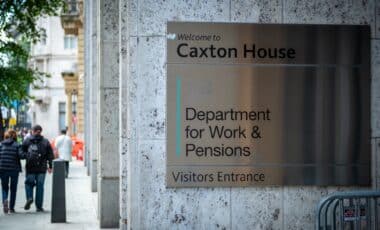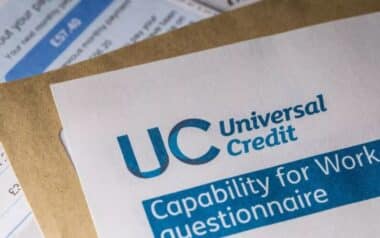The UK government’s planned overhaul of Personal Independence Payment (PIP), a central disability benefit administered by the Department for Work and Pensions (DWP), is facing mounting scrutiny across political and public spheres.
Announced as part of a broader reform of welfare, the proposals have triggered concern among policy analysts and disability advocacy groups. Critics warn that the revisions could result in hundreds of thousands of disabled people losing access to financial assistance they currently rely on.
GB News has reported growing backlash over the changes, reflecting a broader unease about whether the government’s strategy aligns with the realities faced by claimants.
Proposed Pip Changes to Introduce Stricter Eligibility Rules
From November 2026, new eligibility requirements will apply to PIP applicants. Specifically, claimants must score a minimum of four points in at least one daily living activity to qualify for the daily living component of the benefit.
These changes are part of a broader effort to refocus support on individuals with the highest levels of need.
The reforms will also apply to existing claimants, who will undergo reassessments under the new criteria. Those no longer meeting the threshold risk losing access to payments.
The proposed changes have not only come from the Conservative government. The Labour Party has also signaled support for reducing disability benefits.
The party argued that the rise in PIP claims has been twice as fast as the increase in the number of disabled people, suggesting that current provisions may be extending beyond the originally intended scope.
NEF Research Contradicts Misuse Claims
Research published by the New Economics Foundation (NEF) challenges the narrative of systemic misuse. The think tank found that only 46% of disabled people currently receive PIP, up from 40% before the pandemic. Despite the rise in applications, the claim success rate has remained stable at around 50%, indicating a consistent assessment process and suggesting that the system is not being exploited.
According to NEF senior economist Max Mosley, this trend reflects increasing financial and medical needs, not fraud or misuse:
“Our analysis suggests that PIP is going to exactly the sort of people it is intended to support, but that higher rates of disability and financial hardship are driving more people to claim.”
He warned that:
“The Government’s plans to restrict access to PIP will lead to hundreds of thousands of disabled people missing out on support they very much need.”
Mosley added that the proposed restrictions:
“Could well prove to be as politically toxic for the government as cutting the Winter Fuel Payment.”
Economic Hardship and Disability Prevalence Drive PIP Claims
One of the study’s most significant findings is a high correlation between economic deprivation and PIP uptake. Researchers discovered that combining regional deprivation data with the number of disabled residents enabled them to predict local PIP rates with 94% accuracy.
This predictive strength supports the argument that financial hardship and increased disability prevalence are the primary drivers of rising PIP claims, not misuse or relaxed eligibility.
New Means Testing for Energy Support Impacts Pensioners
In a parallel move, the government has also modified its energy bill support scheme for older households. Chancellor Rachel Reeves confirmed that the up to £300 energy support payment for pensioners will become means-tested. Unlike previous years, where the support was universal, only those receiving Pension Credit—a top-up benefit for low-income pensioners—will now qualify.
This marks a significant shift away from universal provision, potentially affecting a large number of retirees who are not eligible for the credit despite financial vulnerability.









